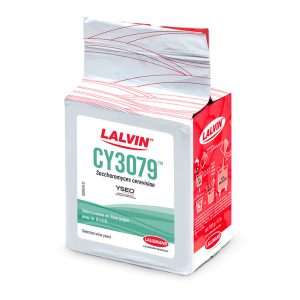
The yeast strain was isolated and selected in Bourgogne, France, by the staff of the wine research institute (BIVB) there from Chardonnay grapes harvested in excellent vintages. It is primarily suitable for making this, but it can be used to ferment white wines from all Burgundian grape varieties.
PROPERTIES
Does not have a killer factor, but is not sensitive to the K2 killer toxin
Can be used in a wide temperature range, from 13-32 °C
Short pre-fermentation (LAG) period
Implantation (the strain becoming dominant over other yeasts): 80% under normal conditions
Very good alcohol tolerance
Very good alcohol yield (1 vol% alcohol from 15-16 g sugar)
Produces few volatile acids and hydrogen sulfide
High nutrient requirements
SENSORY PROPERTIES
The strain has a uniform and average fermentation ability, tolerates cold well even at 13°C.
At the end of fermentation, it slows down, thus providing good conditions for autolysis, which contributes to the roundness of the wine.
Its nutrient requirements are relatively high, it is advantageous to add nutrients for rehydration, and a uniform nutrient supply is recommended during fermentation. In this case, it ferments up to 15% alcohol and produces little volatile acids and sulphites.
The strain is particularly suitable for making Chardonnay wines, for wines fermented in barrique barrels, aged on their lees, but can also be used for Chablis-type (old steel tank) fermentations. An extremely important feature of the strain is that it preserves and even emphasizes the varietal character and produces a wine with an extremely long, full, round flavor, complemented by the aromas of fresh butter, almonds, honey, white flowers and pineapple.
APPLICATION
In order for the yeast strain to suppress wild yeasts most effectively, direct inoculation is advisable, for which the required dose is rehydrated in warm water (37-40 °C) corresponding to ten times the amount of dried yeast, left to stand for 15 minutes, then poured directly into the must after vigorous mixing. (Important: do not let the yeast rehydrate for longer than the prescribed time!)
DOSAGE
For white wine: 15-30 g/hl, depending on temperature and maturity, and the degree of must clarification.
Reviews of the product
Be the first to review this product!